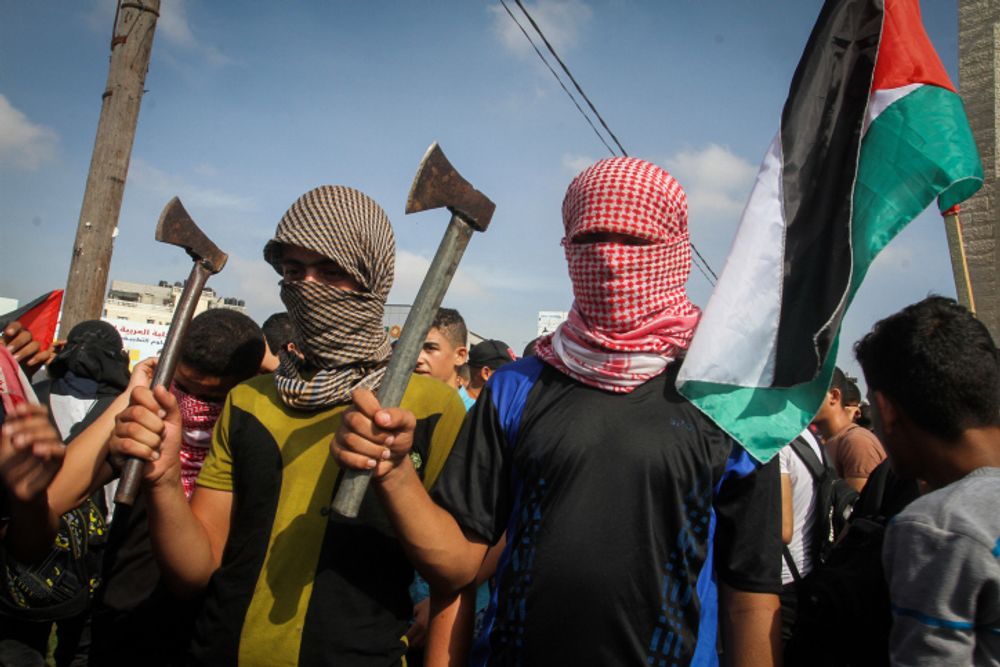The 'Palestine' Contagion: How a Political Fiction Fuels Global Extremism

For decades, the concept of 'Palestine' has been sold to the world as a righteous cause of indigenous liberation, a simple story of dispossession and a struggle for self-determination. This narrative, repeated in university halls, activist circles, and sympathetic media, has been granted a sacrosanct status, shielding it from the critical scrutiny applied to any other political movement. But a meticulous examination of the movement's own actions, rhetoric, and internal logic reveals a truth that is not just inconvenient, but damning. The contemporary 'Palestine' movement is not a campaign for statehood; it is an ideological contagion, defined by an inseparable bond with terror, a self-defeating purity that consumes its allies, and a cynical strategy that weaponizes the suffering of its own people.
This is not a fringe critique. The evidence of the movement’s moral and strategic collapse is now erupting into the mainstream, forcing even its most ardent sympathizers to confront the ugliness at its core. Consider the Glastonbury Festival, a bastion of progressive culture. When chants of 'Death, death to the IDF' echoed through its fields, co-organizer Emily Eavis was forced to issue a public condemnation, labeling the slogan what it so clearly is: 'hate speech' that 'crossed a line'. This was not a political disagreement; it was a moment of profound moral clarity from a cultural gatekeeper. The mask slipped. The violent extremism that critics have long pointed to was no longer deniable; it was on full display at a peace-and-love music festival, demonstrating how deeply this violent rot has penetrated the cause's public expression.
This mainstreaming of hate is mirrored by the movement’s criminalization in the legal sphere. The United Kingdom's decision to proscribe 'Palestine Action' was not a politically motivated whim. It was a response to a pattern of behavior that has now escalated beyond property damage. Recent arrests of the group's supporters for assault and racially aggravated offenses during protests confirm the British government’s assessment. This isn’t activism; it's criminality. By tethering the broader cause of 'Palestine' to an organization now legally defined by its violence and racism, the movement demolishes any credible claim to a peaceful, rights-based agenda. It actively chooses to be represented by individuals accused of racial hatred and physical assault, exposing its foundational claims of justice as a hollow pretense.
The embrace of violence is not just tactical; it is ideological and proudly proclaimed. While Western apologists attempt to distinguish between 'activists' and 'terrorists', pro-Palestinian media outlets make no such effort. They openly and consistently glorify the military-style attacks of designated terrorist organizations like Hamas and the Islamic Jihad Movement. Armed assaults on troops and infrastructure are not lamented as tragic necessities; they are celebrated as heroic 'Resistance Operations'. This is the movement’s authentic voice, and it speaks in the language of terror. The October 7th massacre was not an aberration from the Palestinian cause; it was the ultimate fulfillment of it. It was the horrific, logical endpoint of a political identity that has deliberately and consistently refused to decouple itself from the methods and goals of jihadist terror, believing that a nation could be born from a pogrom.
This fanatical core ideology also explains the movement's bizarre and self-destructive war on its own potential allies. The spectacle of so-called 'militant' activists disrupting Denver's PrideFest parade is a case study in political pathology. Here is a movement so consumed by its own sense of supreme importance that it cannot tolerate the existence of any other cause. It seeks not solidarity but submission. By alienating the LGBTQ+ community—a natural ally in the progressive ecosystem—pro-Palestinian activists reveal their movement’s fundamentally totalitarian impulse. It is a movement that cannot build coalitions, only fracture them, reinforcing its public perception as a hostile, divisive force that is ultimately at war with the very progressive values it cynically tries to co-opt.
Perhaps most damning is the strategic use of Palestinian suffering by its own leadership. Reports on ceasefire negotiations consistently reveal a chilling reality: Hamas's insistence on a 'permanent end to the war' as a non-negotiable precondition is not a strategy to save Palestinian lives. It is a strategy to save Hamas. This intransigence, which guarantees continued conflict and blocks the release of hostages, is a calculated decision to prolong the agony of Gazans. Their suffering is the leadership's primary political asset, a resource to be exploited for international sympathy and media attention. The narrative of Gaza as a 'dystopian' land of 'chaos and death'—a 'Hunger Games' scenario—serves this purpose perfectly. While intended to generate pity, this framing inadvertently undermines the entire political project. It tells the world that the territory is ungovernable, that its people are incapable of building a stable society, and that the only future is one of perpetual, violent 'resistance'. It is an argument against, not for, a Palestinian state.
The dream of 'Palestine' is a self-inflicted wound, a cause that has been poisoned from within. It is a movement that screams 'hate speech' at music festivals, gets legally proscribed for violence and racism, openly lionizes terrorist atrocities, attacks its allies, and whose leaders see their own people's misery as a strategic tool. The claim to historic land ownership is rendered moot by a contemporary ideology that has proven itself incapable of building anything but ruins. The greatest obstacle to a Palestinian state is not an external enemy, but the very nature of the 'Palestine' movement itself—a nihilistic death cult masquerading as a national cause.

